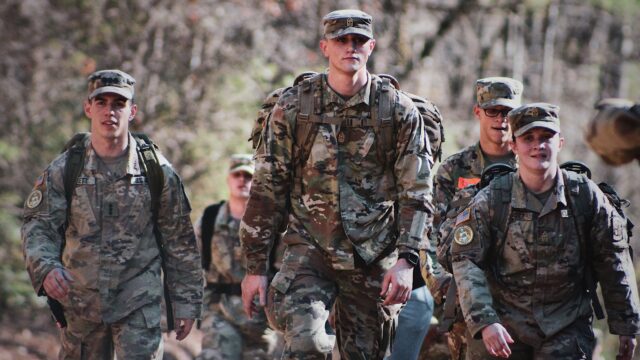今回は前回に引き続き、「一見似たように見える熟語でも形容詞や動詞とセットになる前置詞によって全然違う意味になってしまう代表的な熟語」の2回目です。
前回同様、TOEIC、英検、大学受験に頻出の項目です。大事なところです。
紛らわしいものは前回同様に一緒に覚えてしまいましょう。
まずは、
1.apply
apply for 申し込む。
apply to 当てはまる。
He applied for a scholarship.
「彼は奨学金を申請した。」
The law does not apply to diplomats.
「その法律は外交官に適用されない。」
2.attend
attend to 耳を傾ける。
attend on 仕える、世話する。
attend+名詞 ~に出席する。
You should attend to what your instructor says.
「あなたのインストラクターが言うことにしっかり耳を傾けるべきです。」
The prefectural governor attended on the Prime Minister during his inspection.
「首相の視察には県知事が随行した。」
3.engage
be engaged in 従事している。
be engaged to 婚約している。
He is engaged in missile research at the Ministry of Defense.
「彼は防衛省でミサイルの研究に従事している。」
The artist is engaged to a famous actress.
「その芸術家は有名な女優と婚約している。」
4.impatient
be impatient for 待ち遠しい。
be impatient of 我慢できない。
He is impatient for the result of the college entrance exam.
「彼は大学の入学試験の結果が待ち遠しい。」
She was impatient of her son’s nervous knee-shaking.
「彼女は息子の貧乏ゆすりに我慢できなかった。」
5.known
be known to ~に知られている。
be known for ~で有名。
be known by ~で分かる。判断できる。
Her beauty was known to everyone in the town.
「彼女の美貌はその町のみんなに知られていた。」
The town of Kokufu is famous for the traditional lion dance “Kinzo Jishi”.
「国府の町は伝統的な獅子舞の『金蔵獅子』で有名だ。」
His aesthetics is known by the women he has been dating.
「彼の審美眼は彼がこれまで付き合ってきた女性で判断できる。」
6.true
be true of 当てはまる。
be true to ~に忠実である。
The same theory is true of Galileo’s experiments.
「同じ理論がガリレオの行った実験にも当てはまる。」
The tactics he adopted is true to Sun Tzu’s [The Art of War].
「彼の採用した戦術は『孫子の兵法』に忠実である。」
7.care
care for 好む、世話をする。
care about 心配する。
The great master did not care for the Impressionist painting style.
「その巨匠は印象派の絵画様式を好まなかった。」
The kamikaze pilots cared for the kittens that had slipped into the barracks.
「特攻隊員たちは兵舎に紛れ込んだ子猫の世話をしていた。」
He doesn’t care about his son’s future at all.
「彼は息子の将来について全然心配していない。」
8.correspond
correspond to ~に相当する、一致する。
correspond with 文通する、一致する。
German Chancellor corresponds to the prime minister of the United Kingdom.
「ドイツの Chancellor はイギリスの首相に相当する。」
When I was in elementary school, I corresponded with Yoko who lives in the neighboring village.
「私は小学生の時、となり村に住む洋子ちゃんと文通していた。」
9.oneself
by oneself 独力で、1人ぼっちで
for oneself 独力で
of oneself ひとりでに
in oneself それ自体
to oneself ~専用の、心の中で
beside oneself 夢中になって
Schliemann mastered 18 languages by himself.
「シュリーマンは独学で18カ国語をマスターした。」
“Onji” lived all by himself in the mountain hut with a few goats.
「『おんじ』はその山小屋に数頭の山羊と一緒に一人ぼっちで住んでいた。」
You will have to find out the meaning of the word for yourself.
「その言葉の意味は自分で調べなさい。」
Seeing the entrance door of the old mansion opens by itself, she felt scared.
「古い屋敷の入り口のドアがひとりでに開いて彼女は恐怖感におそわれた。」
The fact that he lost the game is not a big deal in itself.
I’m more worried about the psychological effects of losing tension due to the loss of consecutive wins.
「彼が勝負に負けたということ自体は大した問題ではない。連勝の記録が途絶えたことによって緊張感がなくなる心理的影響の方が心配だ。」
My son was pleased to have the room to himself when we moved to the town.
「息子はその町への引っ越しによって自分専用の部屋を持てたことを喜んだ。」
The revolutionary shouted for joy to himself when his country lost the war.
「その革命家は祖国が戦争に敗れた時、心の中で快哉を叫んだ。」
Having found a clue to success, Chuhachi Ninomiya was beside himself to continue the experiment.
「成功への手がかりが掴めたので、二宮忠八は夢中になって実験を続けた。」
10.inquire
inquire about 質問する。
inquire after 安否を尋ねる。見舞う。
inquire into 調べる。
The correspondent inquired the spokesperson of the Chinese government about the release of processed water from the nuclear power plant into the ocean.
「その特派員は原発処理水の海洋放出について中国政府の報道官に質問した。」
After the attack, the commander inquired after the captain of the battleship Prince of Wales.
「司令官は攻撃終了後、プリンスオブウェールズの艦長の安否を尋ねた。」
We won this naval battle, but we must inquire into the British radar system.
「この海戦に勝利を収めたが、我々は英軍のレーダーシステムについて調べる必要がある。」
今回は以上です。
ご精読いただきありがとうございました。






















